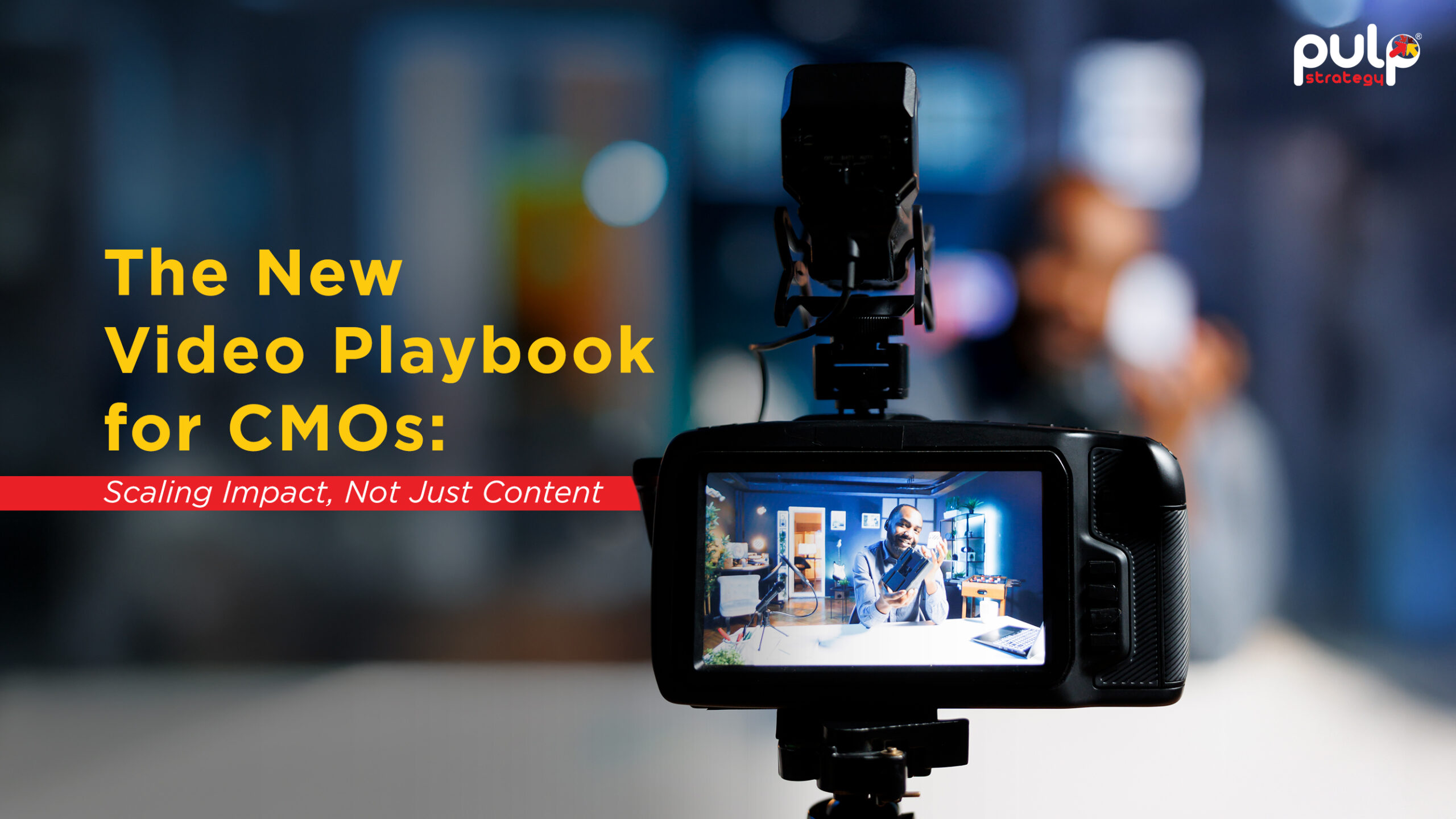A data-driven marketing strategy relies on data and analytics to drive decisions. This type of strategy can be used in several different ways, but the common goal is to use data to improve marketing efforts. Is your brand following the best practices in data-driven marketing strategies?
The marketing spectrum has seen a fundamental shift in recent years. The 'Spray & Pray' traditional approaches are no longer effective. Consumers today are smart and want a more personalised experience. This is leading most businesses to turn to big data. After all, how does one know what's working without metrics?
This is where a data-driven marketing strategy gains significance. It is more beneficial than traditional marketing campaigns and helps businesses deliver a much higher return on investment (ROI). A data-driven approach helps marketers analyse the success of their marketing campaigns and make adjustments wherever required. But it all boils down to this - How and where to start? What are the focus areas? Let's look at some of the best practices to devise a data-driven marketing strategy.
Data-Driven Marketing – What is it?
A data-driven marketing strategy relies on data and analytics to drive decisions. This type of strategy can be used in several different ways, but the common goal is to use data to improve marketing efforts.
To develop a data-driven marketing strategy, you need to collect data on your customers, their behaviour, and what they're interested in. You can do this through customer surveys, social media listening, website analytics, and other research methods. Once you have this data, you need to analyse it to understand what it means. This will help you identify patterns and trends that you can use to improve your marketing.
For example, let's say you own a pet store. You might use data-driven marketing to find out that most of your customers are women between the ages of 25 and 34. You could then use this information to create targeted marketing campaigns that appeal to this demographic. Or, let's say you sell software products. You might use data-driven marketing to find out that your target market is interested in new features and discounts. You could then use this information to create a marketing campaign that offers these things.
Data-Driven Marketing – What are the Benefits?
There are many benefits of data-driven marketing. Let’s look at the ones most suitable -
Increased ROI
One of the main benefits of data-driven marketing is that it can help you increase your return on investment (ROI). By using data to inform your decisions, you can avoid wasting money on marketing activities that don't work and instead focus your efforts on strategies that are proven to be effective.
Improved Customer Insights
Another benefit of data-driven marketing is that it gives you a better understanding of your customers. By collecting and analysing data about customer behaviour, you can gain valuable insights into what they want and need. This information can then be used to improve your marketing campaigns and target your audience more effectively.
Greater Efficiency
Data-driven marketing is also much more efficient than traditional marketing approaches. With traditional marketing, businesses often have to rely on trial and error to see what works and what doesn't. This can be a time-consuming and costly process. However, data-driven marketing enables you to quickly identify which strategies are working and which ones aren't so that you can make adjustments accordingly.
Increased Flexibility
Another advantage of data-driven marketing is that it's much more flexible than traditional marketing approaches. Because you're basing your decisions on data, you can easily change course if something isn't working as planned. This allows you to experiment with different strategies and tactics until you find the right mix for your business.
Greater Scalability
Data-driven marketing is also scalable, meaning that it can be easily adapted to meet the needs of a growing business. As your business grows, you can simply add more data sources and increase your marketing budget to accommodate the additional growth. This makes data-driven marketing an ideal solution for businesses of all sizes.
Data-Driven Marketing – Best Practices
When used correctly, data-driven marketing can be a powerful tool that can help you to achieve your marketing goals. By following these best practices, you can ensure that you are making the most of this approach.
Collect Data From Multiple Sources
Don't rely on just one source of data when making marketing decisions. Collect data from a variety of sources, including surveys, customer interviews, focus groups, and website analytics. This will give you a more complete picture of your target audience.
Analyse the Data Carefully
Don't just look at the data that supports your existing beliefs. Be open to finding new insights that could change the way you think about your target audience. Take the time to properly analyze the data before making any decisions.
Use Data-Driven Marketing to Target Your Campaigns
Once you have a good understanding of your target audience, you can use data-driven marketing to fine-tune your messaging and better target your advertising spend. This will help you to achieve your marketing goals.
Keep Track of Your Results
Data-driven marketing is an ongoing process. Keep track of the results of your campaigns and adjust your strategy as needed. This will help you to continuously improve your data-driven marketing approach.
Data-Driven Marketing – Best Tools to Use
There are several different data-driven marketing tools available, each with its unique benefits. Some of the most popular ones include -
Google Analytics
Google Analytics is a free web analytics platform that provides insights into website traffic and user behaviour. It can be used to track conversions, understand which channels are driving traffic, and identify areas for improvement.
Adobe Marketing Cloud
Adobe Marketing Cloud is a comprehensive suite of marketing tools that includes everything from email marketing to web analytics. It’s a great option for larger organizations that need an all-in-one solution.
Marketo
Marketo is a popular marketing automation platform that helps organizations automate and track their marketing activities. It can be used to create and manage email campaigns, landing pages, and lead nurturing programs.
HubSpot
HubSpot is another comprehensive marketing platform that offers a wide range of features, including CRM, sales, and web analytics tools. It’s a great option for businesses of all sizes.
Pardot
Pardot is a salesforce automation tool that helps organizations manage their lead generation and prospect tracking efforts. It’s a great choice for companies that are looking for a way to improve their sales and marketing alignment.
Data-Driven Marketing - Final Thoughts
Today's consumer expectations demand a data-driven marketing approach. With an increased number of channels and devices to target the audience, investing in data-driven marketing becomes all the more critical. It enables you to create personalised consumer experiences, optimised spending, and achieve a greater ROI.
Pulp Strategy is the partner you need to take the next step forward. We devise data-driven marketing strategies and campaigns to delight our customers with thoughtful conversations to help build meaningful relationships. Get in touch with us today to get started!







